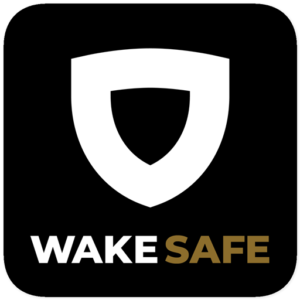Stalking
If you or someone you know is in danger at any time, please call Wake Forest University Police at 336.758.5911. If you are injured, seek medical attention right away.
The Safe Office is available 24/7 at 336.758.5285 to confidentially respond to urgent needs, assist students as they evaluate their options, and support them as they begin the healing process. Additional resource information is available in the Get Resources section.
You are not to blame for the stalker’s behavior.
People react differently to being stalked, and it is common to feel a range of emotions. If you are being stalked, you may:
- feel fear of what the stalker will do
- feel vulnerable, unsafe, and not know who to trust
- feel anxious or irritable
- feel hopeless, depressed, overwhelmed, tearful, or angry
- feel stressed and experience trouble concentrating, sleeping, or remembering
- feel confused, frustrated, or isolated because other people don’t understand
- experience eating problems, such as appetite loss, forgetting to eat, or overeating
- experience flashbacks, disturbing thoughts, feelings, or memories
Please know that you are not alone, and there are resources available to help you.
No two stalking situations are alike and there are no guarantees that what works for one person will work for another, but individuals can take steps to increase their safety.
What to do if you are being stalked
- Contact the Safe Office for our staff to help you navigate options, resources, and safety planning.
- Trust your instincts. Victims of stalking often feel pressured by friends or family to downplay the stalker’s behavior, but stalking poses a real threat of harm. Your safety is paramount.
- Call the police if you feel you are in any immediate danger. Explain why some actions that seem harmless, like leaving you a gift, are causing you fear.
- Keep a record or log of each contact with the stalker and include specific information on date, time, place, event, and any witnesses. Be sure to also document any police reports.
- Save any evidence (e.g. notes, gifts, objects, photos, and voice messages) to document the stalking behavior.
- Stalkers often use technology to contact their victims. Save all emails, text messages, photos, and postings on social networking sites as evidence of the stalking behavior, consider deactivating your social media accounts when you are not logged in, and avoid any social media program that publicizes your location.
- Alter your travel routes and daily routines.
Source: Stalking Resource Center

Need to leave the website quickly?
Safe Office
Need immediate assistance?
24/7 Confidential Support Line
Have a non-urgent question?
Visit Us!
Wake Safe App

- Mobile BlueLight: send your location to and call WFU PD simultaneously.
- Friend Walk: sends your location in real-time to a friend so they can watch you as you walk to your destination!
- Social Escape: allows you to get out of a tough social situation by calling you and giving you an excuse to leave.
- We Are Wake: a comprehensive call to care for the mental health of all students.
- Campus Support Resources
